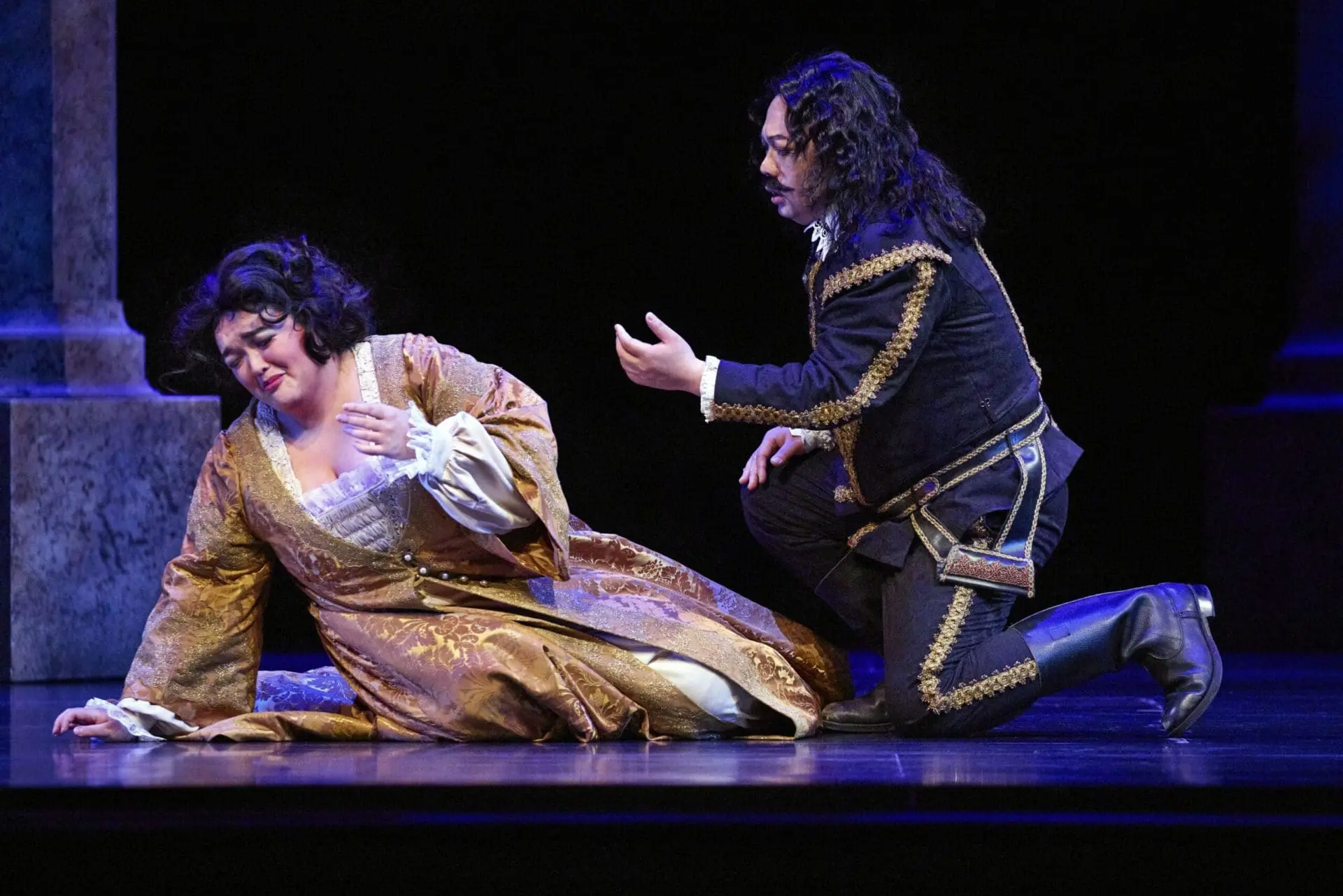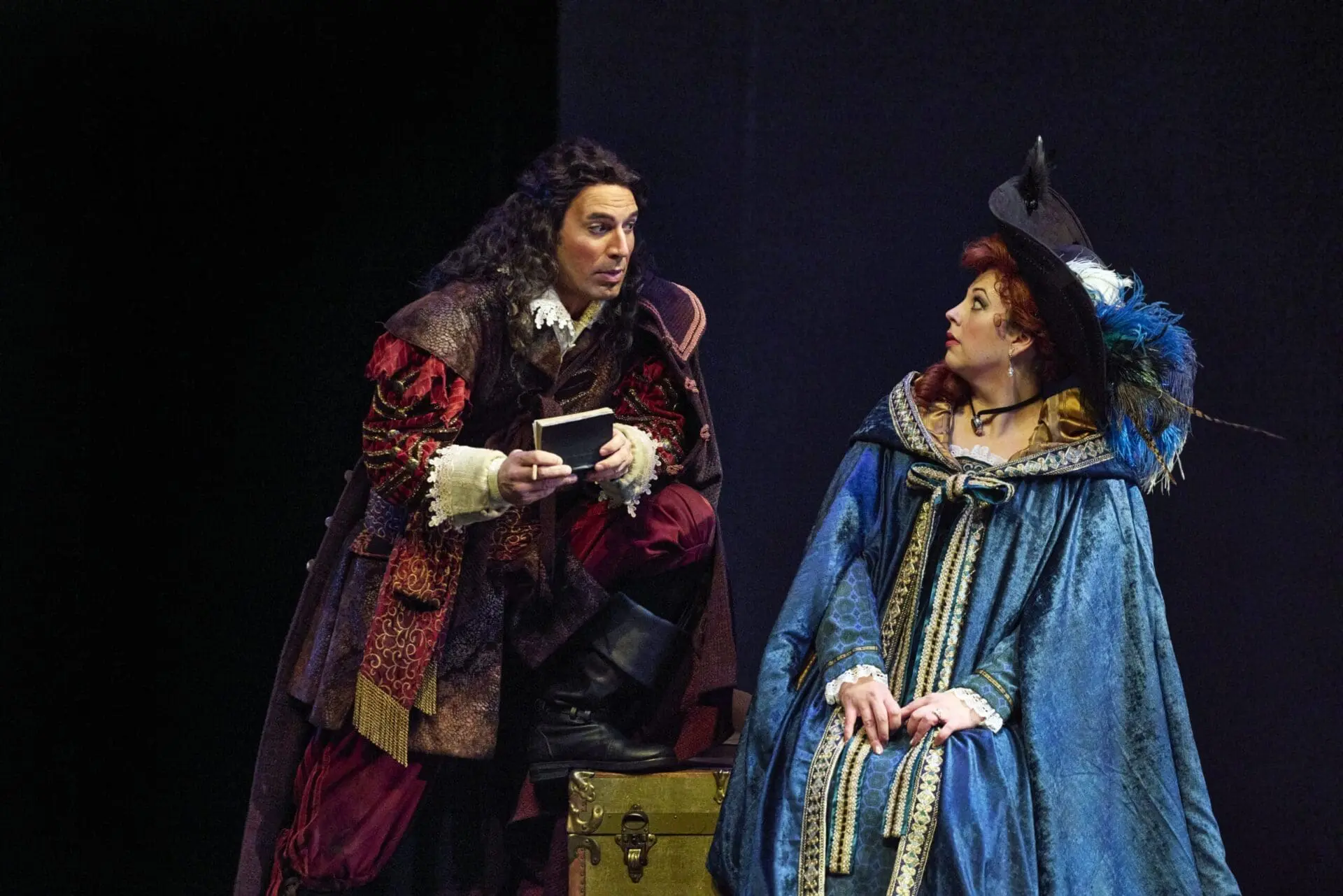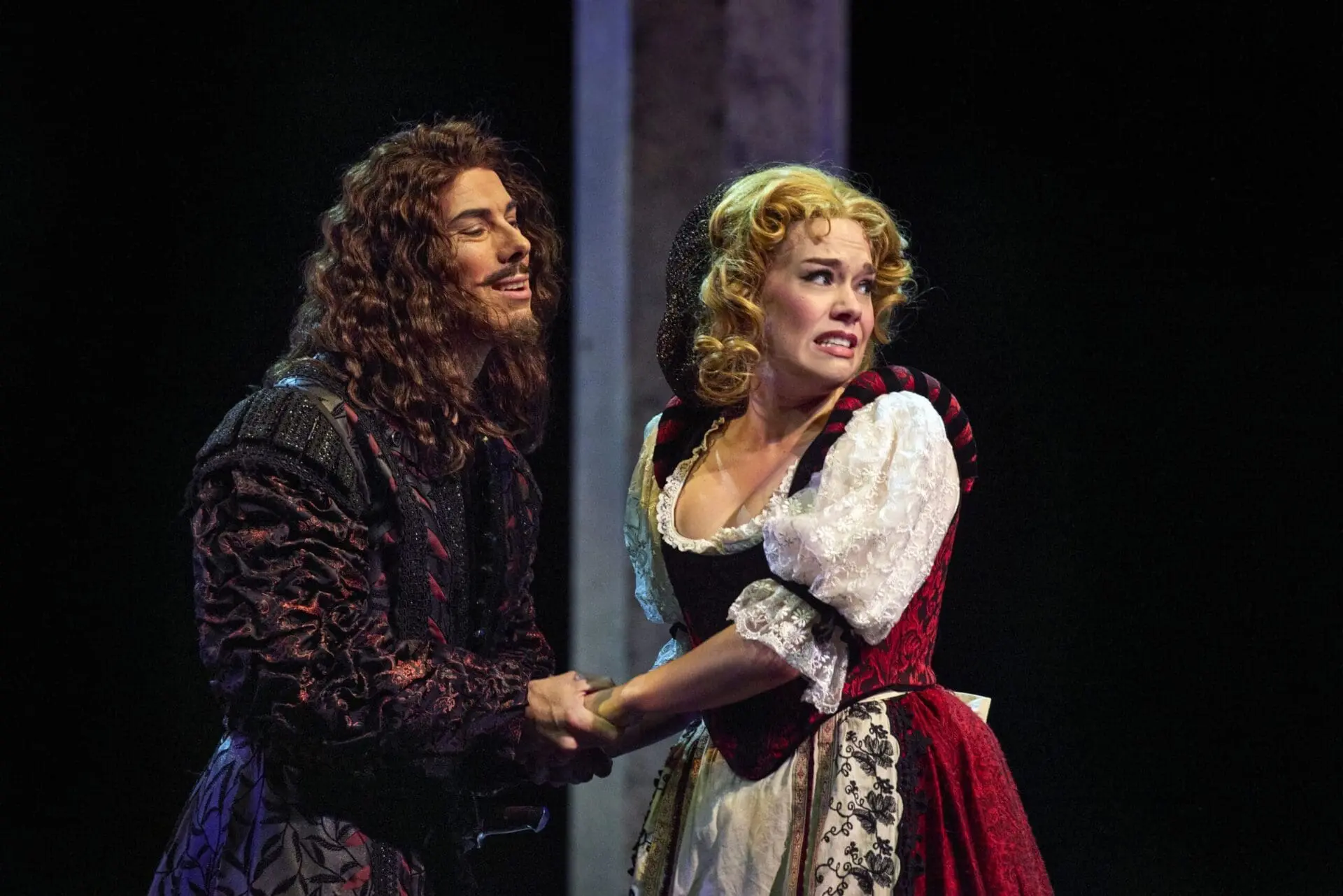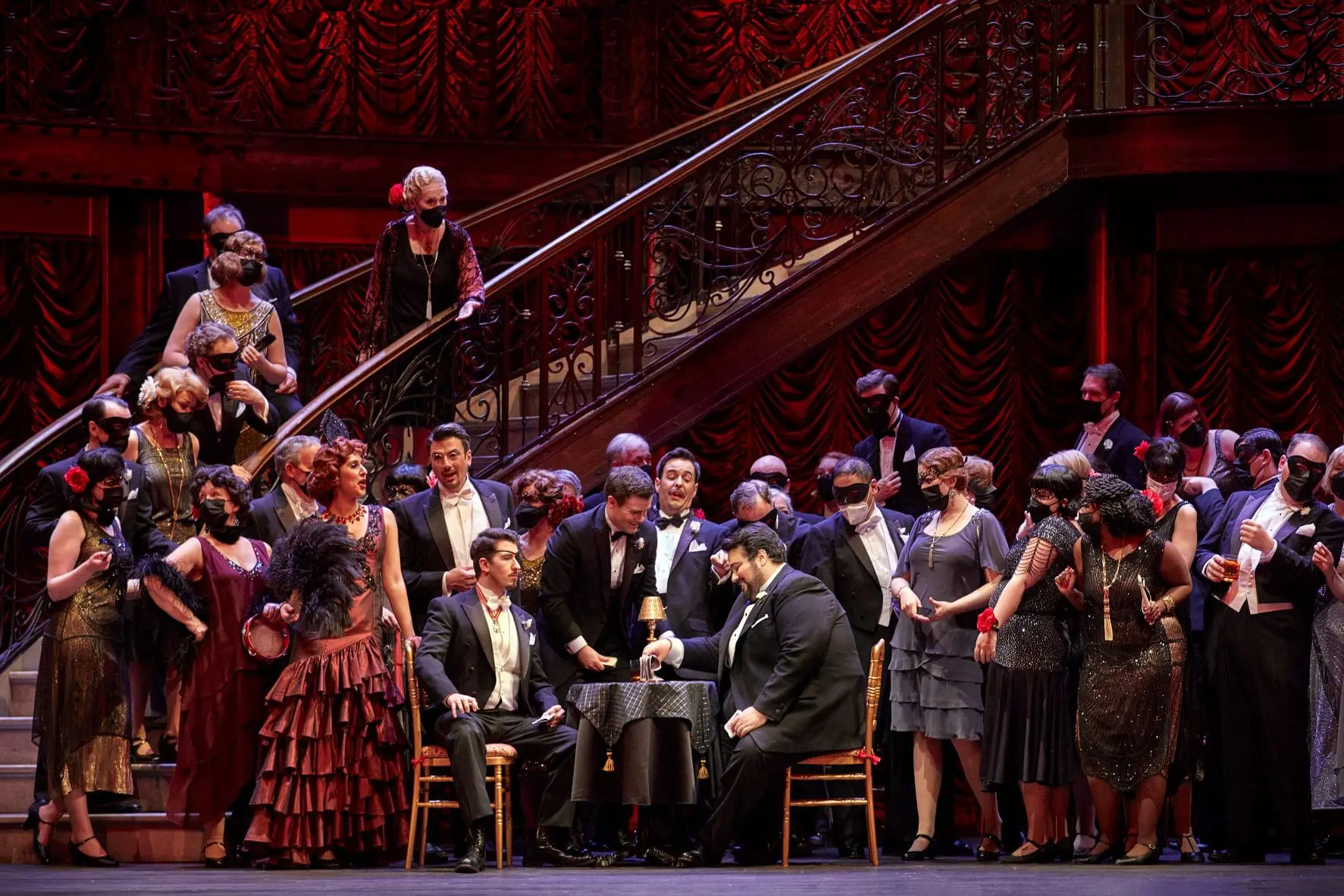Calgary Opera opened its season on November 2nd with a visually austere set and vocally satisfying performances of Mozart’s Don Giovanni.
Unlike last season’s productions I saw, which drew “oohs” and “aahs” when the curtain rose, this Don Giovanni featured Scott Reid’s utilitarian set that framed the action with several floor-to-fly moveable and retractable columns and a short staircase leading to a small platform – not much to cheer about. Much of the changing mood relied on local Calgarian David Fraser’s excellent lighting design, and it was narratively compelling, especially in the climactic moments. Costumes, rented from Sarasota Opera, put the cast in suitably antique-looking garb.
The opera is a period piece that treats subjects such as misogyny with old-fashioned tolerance, even humour. Attempted rape features prominently in the lead character’s lecherous enterprise, as does a degree of inconstancy that is meant to inspire awe at first glance. Leporello’s catalogue of the Don’s conquests in this production even impressed one of his abandoned mistresses, Donna Elvira, who seemed more astonished than revolted as she leafed through Leporello’s account book of the Don’s hundreds of seduction targets.
In fact, notwithstanding some of the more offensive elements of da Ponte’s libretto – Mozart called the opera a dramma giocoso – it deals with the Don’s predatory transgressions matter of factly until in the end, of course, when it doesn’t. This feature of the opera, when it is performed in 2024, is problematic. One looks for human qualities in the principal characters that might lift the work beyond its outdated surface sensibility.
In this production, that character, both musically and theatrically, was Donna Anna, sung beautifully and sympathetically by Midori Marsh, a relative newcomer. Marsh displayed her range impressively as the grieving, vengeful daughter and the pestered fiancée of the single-minded Don Ottavio (tenor Chuan Wang). She sang her distress at the murder of her father, the Commendatore, poignantly in her first-act aria, “Or sai chi l’onore,” and her act two aria, “Non mi dir,” was full of tenderness as she continued, gently, to deflect Ottavio’s persistent matrimonial pleadings.
Wang has a bright, penetrating tenor voice, and when he came to the fore, especially in his second-act “Il mio tesoro,” he displayed a poise and emphatic persuasiveness that made his character feel like more than just an eager suitor indifferent to his beloved’s filial, inconsolable turmoil. His fach was ideal for a character, who is really an eager boy trying to show he’s the masculine character that a vulnerable woman can count on.

Photo Credit: HarderLee Photography
Midori Marsh (Donna Anna) and Chuang Wang (Don Ottavio) at Calgary Opera
The central character, sung by Canadian baritone Phillip Addis, had all the deviant vitality one expects from this villain. He was especially daunting when he lost his temper, when his otherwise devil-may-care demeanor morphed into the narcissistic desperado underlying his generally airy attitude. His beating of the hapless Masetto (Neil Craighead) was very convincing. About two thirds through, Addis seemed to flag a bit, but he finished with a flourish as he defiantly climbed the red-tinted staircase and plunged pyrotechnically into the mouth of hell. His eternal damnation punctuated the Don’s sordid life satisfyingly, although given the bare-bones nature of the production, he was not ushered to his everlasting judgment with any visible demons.
The Don’s sidekick and much put upon enabler, Leporello, was steadily handled by Italian bass Guido Loconsolo. His Catalogue Aria was less flamboyantly delivered than I’ve heard it, but overall, he and Addis made an excellent team. Both men have strong, projective voices, and their opening scene together had a fine manly confidence.
In general, director Anna Theodosakis called for a reserved approach to the more dramatic moments. When the tiny mob catches up with the person they think is the Don in Act Two, their motive is vengeful murder, but their energy was barely menacing. The wedding scene and the party, too, were underplayed for theatrical energy. This production could be called “textbook opera.”
Donna Elvira, sung by Aviva Fortunata, is clearly a comic foil in this opera, and her anger, exasperation, longing, self-delusion invite reactions to the Don’s callousness that should draw laughs and empathy. Fortunata sang the role with some of this emotional volatility, but I think more could have been made of her relentless stalking and her romantic confusion.
The interplay between the Don and the ingénue, Zerlina got the message across that her innocence was an invitation to his ravaging, and the innocent can’t see what’s coming, but Christina Thanisch-Smith, just on the cusp of launching beyond the emerging artist phase of her development, made little of Zerlina’s open personality, her flirtiness and her susceptibility to flattery. Thanisch-Smith sang the role, though, without difficulty, and musically she made a fine impression.
As usual, the Calgary Philharmonic, under Jonathan Brandani, gave the singers a secure orchestral underpinning. Its sound, when dramatic volume was in order, was a little small, but overall the orchestra rendered the Mozart score solidly and supportively.
The audience gave the production enthusiastic applause at the end, suggesting the approach was good enough for them. The music carried the day.

Photo Credit: HarderLee Photography
Leporello (Guido Loconsolo) sings the Catalogue Aria to Donna Elvira (Aviva Fortunata)
Opera Canada depends on the generous contributions of its supporters to bring readers outstanding, in-depth coverage of opera in Canada and beyond. Please consider subscribing or donating today.















